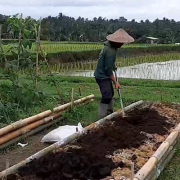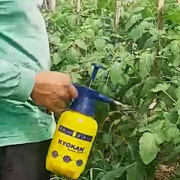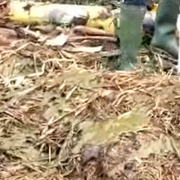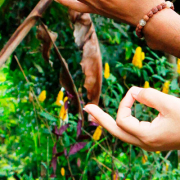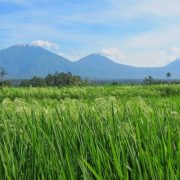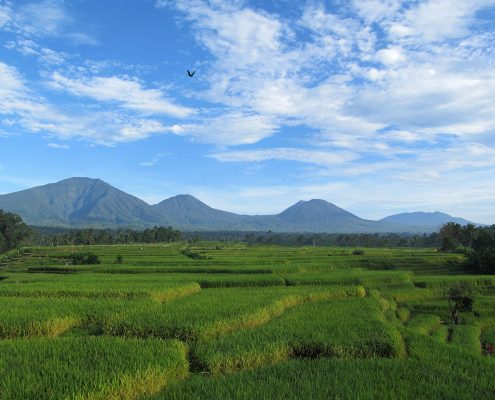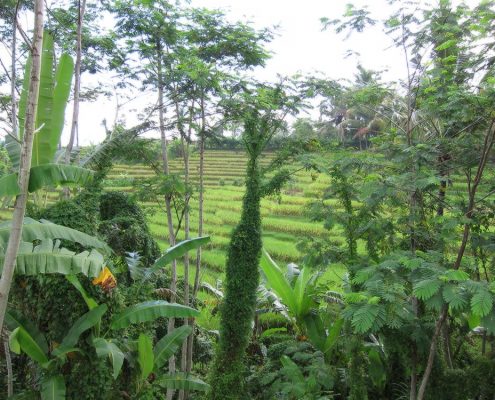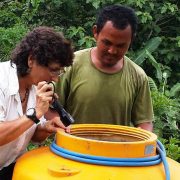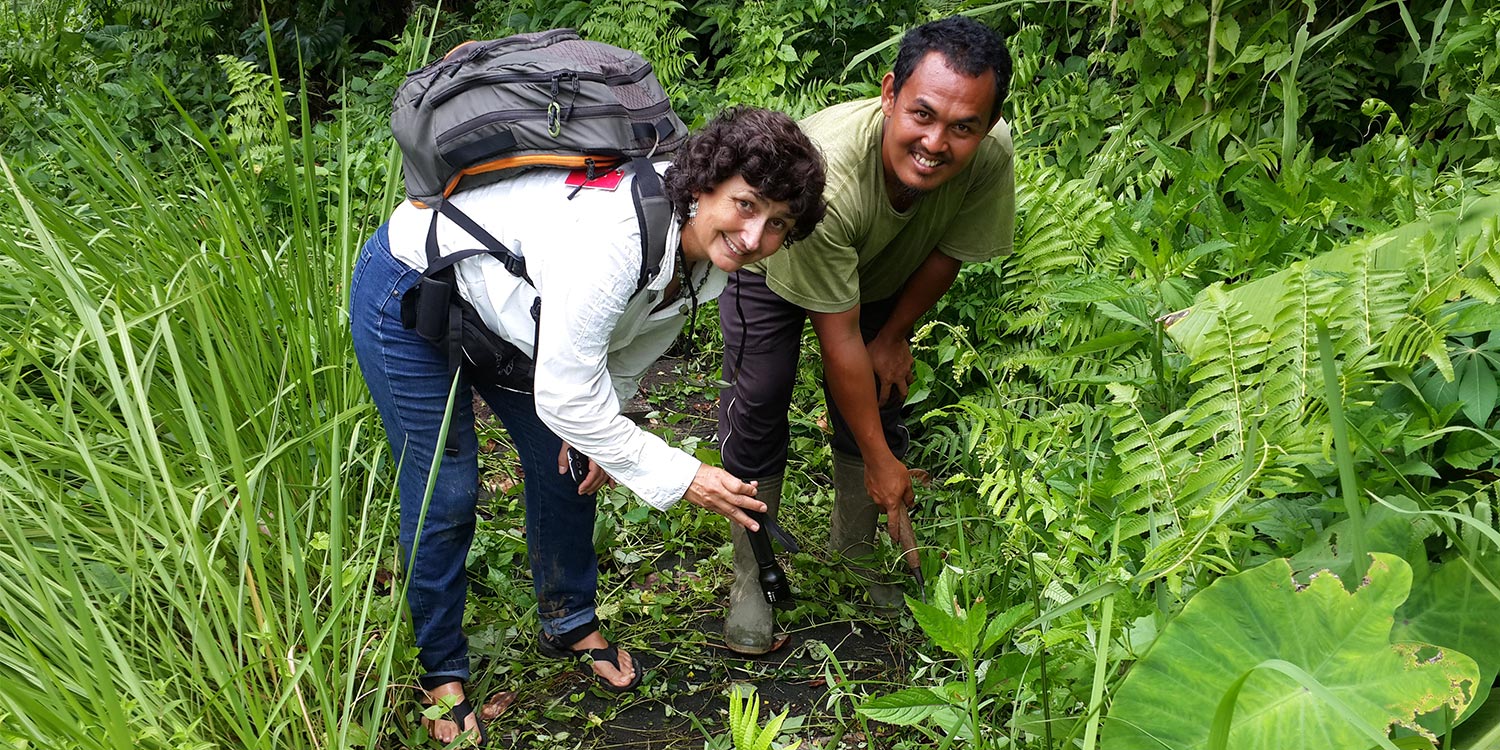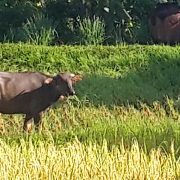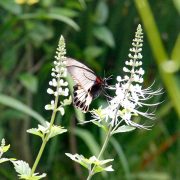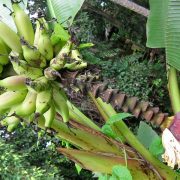A Sustainable Retreat from Soil to Spirit by Richard Mann
in Green, Clean & AlternativeSurrounded by lush rice fields, jungle, healing hot springs and the sacred Mount Batukaru, guests at Bali Silent Retreat nourish body and soul and reconnect to the true self.
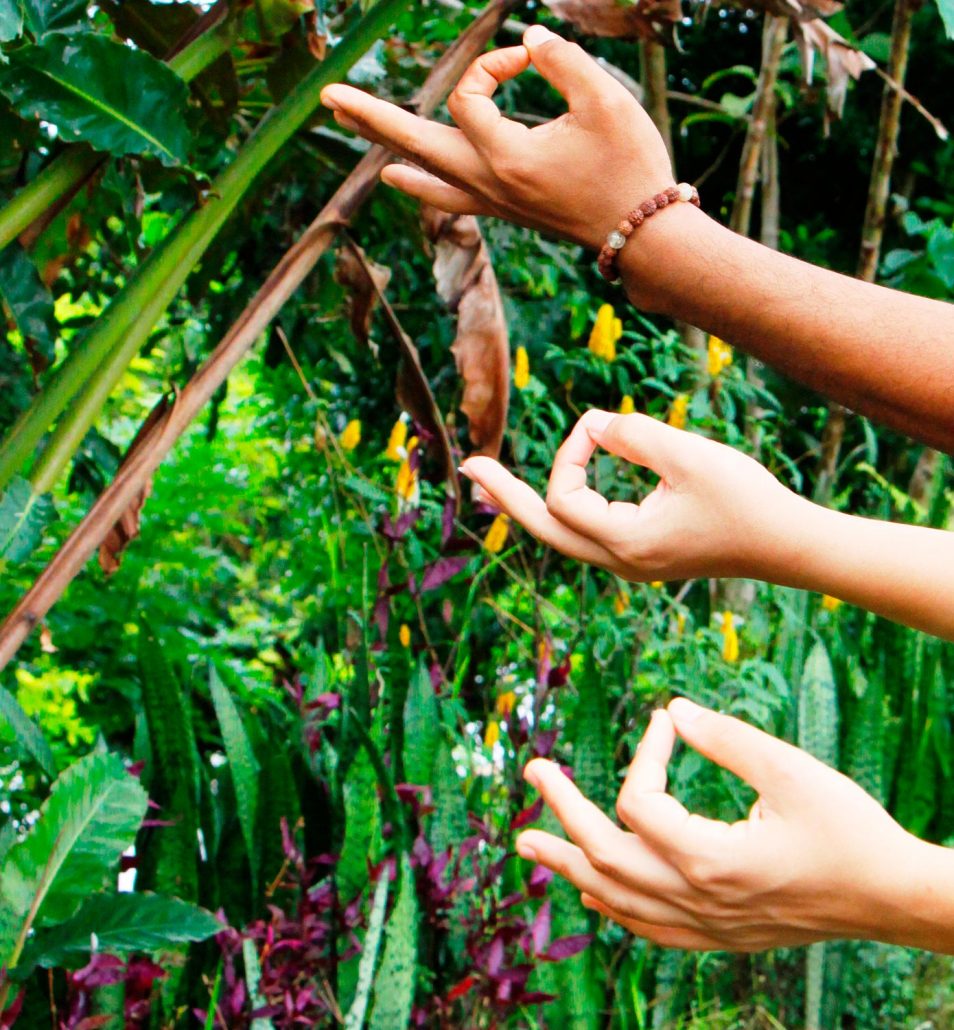 Bali Silent Retreat is a restorative and inspirational sactuary removed from the daily demands of life and committed to a way of living that’s sustainable from the soil to the spirit.
Bali Silent Retreat is a restorative and inspirational sactuary removed from the daily demands of life and committed to a way of living that’s sustainable from the soil to the spirit.
Everything is meditation. Basic living is in silence . . . a silent approach to life-style.
Days are spent dedicated to meditation, yoga, prayer and restful contemplation inspired by spiritual wisdom beginning five hundred years ago when an Ashram was first established where Bali Silent Retreat is located today.
 The structures are primarily from recycled timbers and antique Indonesian ‘jogolos’, with views of the rice terraces, jungle, and mountains at every turn, with open designs for allowing the breezes to flow.
The structures are primarily from recycled timbers and antique Indonesian ‘jogolos’, with views of the rice terraces, jungle, and mountains at every turn, with open designs for allowing the breezes to flow.
The Retreat was created by Patricia, and her Balinese business partner Sang Tu with a vision for sustainable living. Virtually from arrival, guests feel a spiritual and green-to –the-extreme commitment.
Sang Tu explains that the secret of the spirituality of Bali’s ecology is the philosophy of Tri Hita Karana. “This guides us toward achieving a balance and oneness between Body, Soul, and Nature. In essence, Balinese farmers carry on a ‘conversation’ with the unseen world to give thanks, to seek permission to change nature, for example- cutting a tree, and to apologise for mistakes. Our belief is intense. Our hearts and minds are at one with nature. Combined with Tirta Agama ritual, giving thanks for the water, which cascades down from the central mountains to nourish their crops, we Balinese stay in balance.”

Sang Tu is committed to maintaining the ‘old’ ways, such as the medicine garden and using a buffalo to till the rice fields. Every week he shares various Balinese cultural perspectives and the following day takes guests on a 2 hour walk through the rice fields, pointing out medicines, foods, and countryside details not normally available to tourists.
All of this is seen and felt by guests at Bali Silent Retreat who are sometimes so overwhelmed by its silent spirituality that they release long pent up emotions by crying. There is even a ‘crying bench’ down by the river.
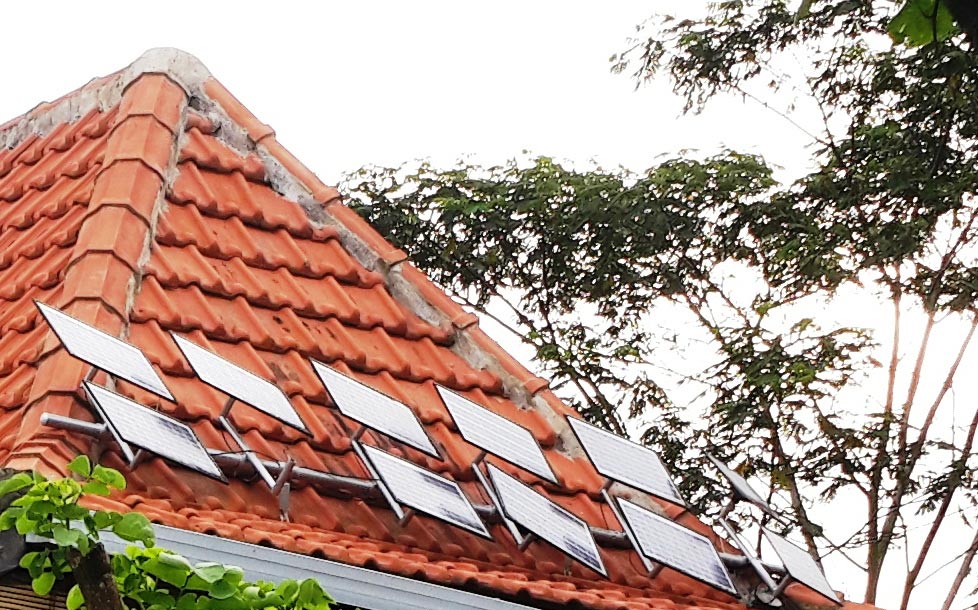 In its operation, the Retreat engages a large commitment to eco friendly practices, such as:
In its operation, the Retreat engages a large commitment to eco friendly practices, such as:
- Solar operations – energy from the sun: 2 types of solar electricity (AC & DC)
- 15KW of AC current for pumps and refrigerators
- Solar (DC) desk lights in each room
- Solar (DC) lights on the paths
- WiFi free zone on most of the site.
- Garbage In; Garbage Out (take any ‘land-fill’, non-compostable, non-recyclable garbage out; in other words, don’t leave your garbage here.)
- NO PLASTIC bottles allowed. Unlike other Bali venues, who hand their guest a bottle of water, each guest at Bali Silent Retreat get a stainless cup which they can refill pretty much anywhere on site, with clean mountain water from their very deep well , which, although is not necessary, has also been treated with UV light and silver-charcoal filter.
- Garbage education for the local village, including removal and recycling of their garbage.
- Reusable containers for kitchen products.
- Weekly lectures and tours of the organic gardens and foraging forest and medicine garden.
Bali Silent Retreat is vegetarian and for people who want to be healed and restored, healthy food and clean air and water is important. The kitchen and garden crews have created chemical free vegetables for growing familiar Western vegetables which are used in tandem with an array of edible plants the food forest, called ‘tegal’. The edible plants are sustained by their eco-systems not by chemicals and include a comprehensive range of edible roots, leaves, herbs and fruits including potatoes, sweet potatoes, bananas, durian, coconuts, peanuts, cashew nuts, cassava, turmeric, ginger, lemon grass, cacao, berries, heritage rice and much more. Some of them are perennial and self seeding requiring very little attention from the garden crew. Some contain surprising amounts of easily soluable protein, are strong and contain the anti-oxidents needed to support the human body. Dishes made from plants like this are served at Bali Silent Retreat and receive very positive reactions.
“THIS IS THE BEST FOOD I’VE EVER HAD ANYWHERE – truly! ”
— Reed, from the US
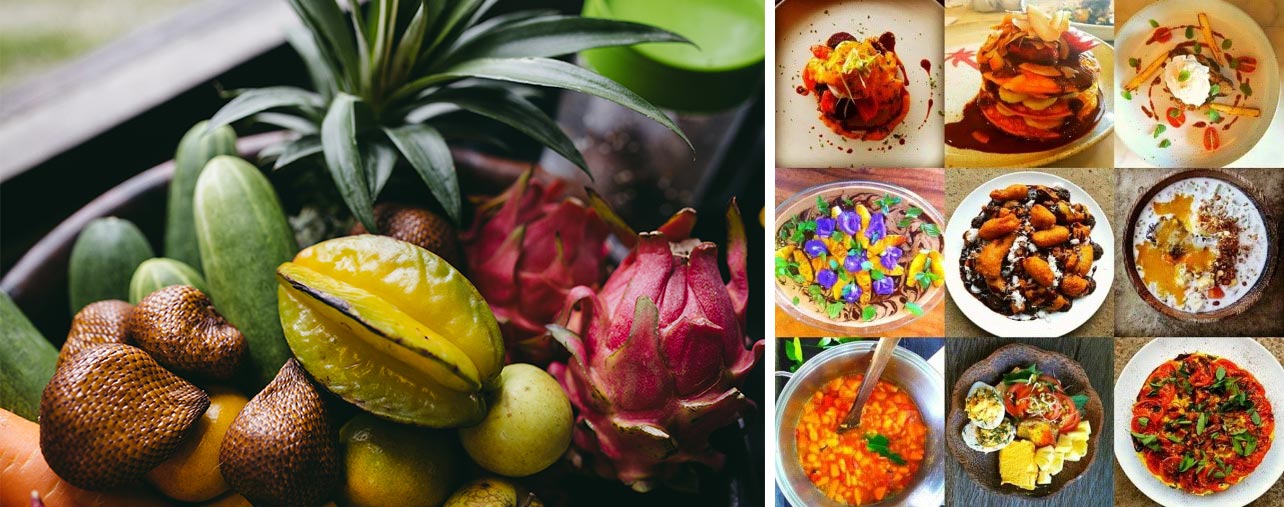
Bali Silent Retreat encourages local farmers by buying as much organic produce as possible, helping to lift their economic position in the countryside instead of looking for jobs in the city. Almost all the food is local, except for a bit of four from Java, for the baked fresh daily, sour dough bread. (no quinoa flown in from South America)
When on the weekly tour of the foraging and perma-culture gardens, guests are encouraged to learn to listen to nature, not pollute and destroy it, achieving a closer relationship with one’s community in order to produce foods conducive to good health. They see how vegetables are fertilized by compost, not chemicals and sometimes reseed themselves in self propagation.
Seed the Soil & the Soul
Inside earth & ourselves is spiritual Eco-system that, although self maintaining, needs to be tended with love.

The 5 basics of maintaing healthy soil:
- Cover the soil (mulch with leaves or cardboard).
- Disturb the soil as little as possible. ‘NO TILLING’.
- Keep plants growing all the time to distribute and feed the soil through living roots.
- Diversify plants with ‘crop rotation’ or combining crops (plants that are friends).
- Manage the nutrients with compost, worms, and fermented organic additives.
Our Microbe Friends:
| Bacteria | feeds on organic matter, stores and cycles nitrogen and decomposes pesticides. |
| Fungi | fan out underground; 3000 species of fungi are in the soil, feeding on dead organic matter and parasites and grabbing nutrients & water for the plants, in exchange for carbon. |
| Protozoa | unlock nitrogen slowly to the plants. |
| Mites | decompose and shred organic matter, which is part of the nitrogen cycle. |
| Earthworms | create nutrient rich castings/fertilizer, as well as, lubricated tunnels that aid soil structure and water movement. |
| Nematodes | microscopic worms, assist the nitrogen cycle, eating other organisms in the soil. (most are non-pathogenic & don’t cause disease.) |
Patricia maintains that vegetables have been grown on ‘agricultural steroids’ for so long, they can’t survive without fertilizer, insecticide, herbicide, etc. She’s experimenting to develop what she calls Super Strong Self Sustaining Seeds and Plants, where vegetables and seeds just drop to the soil:
- Adapt to their environment and strengthened over generations so they do not require chemical support.
- Reproduce themselves easily with chop & drop composting & cow manure.
- Grow in companionship with other plants and vegetables, ie tomatoes, cucumbers, eggplants, greens, which also drop their seeds and self propagate.
- Be shared with the community primarily as live baby plants; only occasionally as seeds.
One of the main intentions at Bali Silent Retreat is that guests are inspired to make more informed choices about the foods they consume food, the way they live (electricity & garbage responsible), their spiritual connections to all (everything is spirit). When they return to their home country, they can make a difference, join like minded people, and help sustain the planet, 1 step at a time.
“This six day experience opened as new world of consciousness about myself, my truth, the planet, my spiritual side and how I truly want to live my life”
— Anonymous, Switzerland.“Bali Silent Retreat is the most special place I have visited during this lifetime on earth.”
— Marilyn, Australia.
Is the so called ‘Green Revolution’ turning brown?
in Green to Extreme, Green, Clean & AlternativeLook around you. Everything you see came from soil, and one day will return to soil.
The industrialization of agriculture since World War 2, commonly called the ‘green revolution’, has changed every aspect of our lives. This modern way of food production is credited with saving a billion people from starving. As the way we live and eat continues to change at a fast pace, questioning its sustainability has become critical for humans to thrive as a species on this planet.
- Can we measure the success of an agricultural system merely by counting numbers of produce bags per hectare of land?
- What does our dependency on finite resources such as crude oil, gas and precious water mean for us in the future?
Find out why it is important to ask the question, what do I want for breakfast tomorrow? In order to understand the impact and issues around our modern ways of food production, let’s break recent history down into simple steps. Read more
Mosquito Detective
in Green, Clean & Alternative![]() Stalking the mosquito hotel!!
Stalking the mosquito hotel!!
We had a great education and lots of fun with Trudy, the mosquito lady, who is a super mozzi detective.
She combed all 6 hectare with her jars of water, a mini siphon to suck up samples of water, a moz zapper for protection, net & scissors & duct tape and most important – her expertise on where the little mozzies hang out, dance, breed, lay eggs and expand their reach.
She taught us that mosquitoes:
- grow from larva to adult in about 7-10 days,
- live about a month,
- will travel 100 meters to feast
- love to live in some of our most beautiful and decorative plants.
More on that later and how we control them in a completely preventative chemical-free way. Read more
Bufy – the lovable (mind the horns) water buffalo
in Green, Clean & Alternative This is Bufy, our eccentric & theatrical, loved & spoiled water buffalo- emphasis on the word ‘water’. She recently won the award of the laziest animal in the village. Her handlers complain that she refuses to pull the plow for more than 10 minutes and insists on eating only baby grasses. Read more
This is Bufy, our eccentric & theatrical, loved & spoiled water buffalo- emphasis on the word ‘water’. She recently won the award of the laziest animal in the village. Her handlers complain that she refuses to pull the plow for more than 10 minutes and insists on eating only baby grasses. Read more
Nature as Meditation
in Blog Snippets, Green, Clean & AlternativeWe have 6 hectare of gardens and jungle here at Bali Silent Retreat surround the property, attracting butterflies, caterpillars, and crickets, bees, frogs, etc etc etc. Many guests take meditating walks just to watch the smaller but larger world of nature which escapes us in the city. Read more
Go-Go Green BANANAs!
in Green, Clean & AlternativeFor banana aficionados:
We have 17 species of bananas at Bali Silent Retreat and a chart you can read, to discover the purpose and characteristics of each species. How and when to harvest is a full and complicated process, unless your Balinese.If you’re Balinese you’ve grown up within the culture of many many Balinese ceremonies and offerings, using all the different types of bananas and you know which banana is used for what and when the banana is growing in the wrong position and direction – just like yoga positions This is one of the areas where instead of retreat you can expand and learn the whole new world of Bali banana culture. Read more

